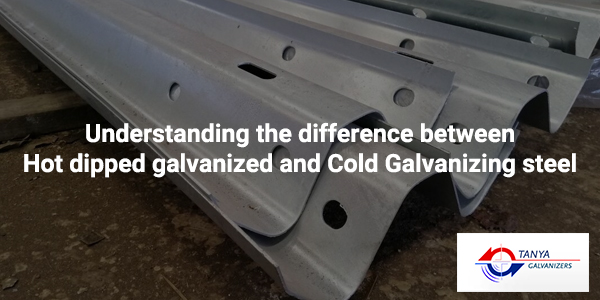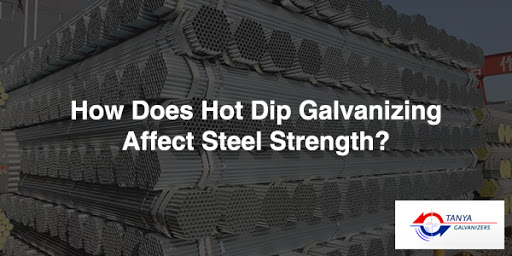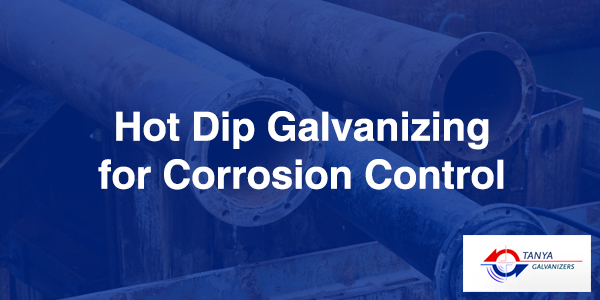Businesses dealing with metals like iron, aluminum, copper and more for the purpose of product development and service-related issues always faces the harsh reality of corrosion a challenge that disrupts the natural flow of these businesses. The process of corrosion highlights a naturally occurring phenomenon where refined metals are naturally converted into more stable composition when comes in contact with air, moisture, humidity and other natural elements to form oxide, sulphide and hydroxide state. These states even though create a more stable composition, but ends up decaying the metal from outside in or inside out. This usually results in weakening of the structure developed with the usage of metal, or result in decaying the metal to such an extent, that it becomes impossible to use the metal for any other function. It is because of the challenges laid down by the process of corrosion on metals, organization’s dealing in metal businesses often have to suffer huge financial losses resulting in loss of goodwill, loss related metal decay and more. It is because of this reason a solution was brought in by metal businesses throughout the globe with the advancement of technology. The solution was galvanization of the metal a solution discovered in 1742 by Melouin a French chemist, where he highlights the application of zinc on the metal surfaces to increase the longevity of the metal. Even though this application of zinc on metal dates back to 2500 B.C. but the discovery of 1742 laid the foundation of exploring the zinc application on metal to the extent where application methods used could result in a change of the timeline for metal longevity. Over the years of technological changes and chemical research two significant approaches of zinc application were discovered, hot and cold dip which functions as a pivotal discovery to today’s galvanization process in the industry.
The approaches to the process of galvanization on metals as signified earlier are of two types they are hot and cold dip galvanizing. Where both the approaches are ideal for protection against corrosion, but it is thoroughly based on your business requirement you should decide which galvanizing process you should take into account to create a protective layer for your metals used in the business.
Let’s take a look at what galvanization is and how hot and cold dip galvanizing differs from each other.
What is Galvanization?
For the common approach of understanding galvanizing process refers to the approach that highlights the application of a zinc coating to the surface of a metal. The usual metal taken into consideration for the process of galvanization are Iron (Fe) and Zinc (Zn). The process of galvanization is principally utilized as a defensive mechanism to prevent corrosion and, likewise, increment the workable existence of the secured metal segment. When appropriately applied to a steel surface, zinc coatings offer two main types of protection: galvanic protection and barrier protection, which in turn increases the longevity of the metal by protecting it against possible corrosion.
Understanding Barrier Protection
Barrier protection signifies the application of zinc on the surface of metal like steel, where the applied zinc hardens over time to create a sheet of layer on the steel. This sheet of layer acts as a protective agent for the steel by conversion of zinc into zinc oxide through the process of surface electrolyte. The hardened zinc oxide layer in turn protects the steel from corrosion against the electrolyte process that usually takes place when the metal comes in surface contact with air and moisture. This protection layout of barrier protection usually takes place because zinc oxide is impervious to moisture and air. This results in preventing the underlying steel to come in contact with air and moisture, which in turn prevents it from further corrosion and increasing its life to a great extent.
Understanding Galvanic Protection
Galvanic protection, also known as cathodic protection, protects the underlying steel substrate by corroding preferentially, thus sacrificing itself in the process. This sort of protection is particularly helpful for circumstances where the protected steel may get exposed because of scratches, cuts, marks or loss of coating due to rigorous usage. Since zinc is an exceptionally receptive and electronegative metal, it will assume the role of the anode, which will result it to be corroding first in an event where the steel underneath get exposed to surface contact. This process of approach by zinc will continue to offer galvanic protection until the coating is entirely consumed. This in turn protect the underlying steel for a longer period of time safeguarding it from exposure surface electrolyte process because of chemical balance that has created an equilibrium because of chemical approach that has been applied in covering the steel in the galvanic process, unlike that of barrier protection, where sheet layer removal can expose the steel to vulnerability.
This chemical approach to protection under galvanic process is divided into particular application methodology they are hot and cold dip galvanizing process. Let’s take a look at how each of these processes functions and how they provide protection to the underlying metal.
Hot Dip Galvanization
Hot-dip galvanizing process is one of the most used application of galvanizing process. This process highlights coating a steel or iron object by submerging it into a bath of molten zinc. The bath of molten zinc showcases temperatures around 840°F (449°C). Once removed from the bath, the zinc coating on the iron or steel’s exterior reacts with oxygen in the atmosphere to form (ZnO) Zinc oxide. This Zinc oxide further reacts with carbon dioxide in the atmosphere to form a more compact protective layer known as (ZnCO3) Zinc carbonate. This Zinc carbonate reflects a dull grayish film, which is relatively stable and adheres tightly to the surface of the steel or iron. This results in the hot-dip galvanizing process to create a chemical balance, which ensures that the zinc is chemically bonded to the underlying metal and becomes part of the steel or metal that is being protected through the hot dip galvanizing process.
How Hot Dip Galvanization is performed
Though the concept of hot-dip galvanizing may seem simple, the process consists of several crucial steps. The steel first goes through three cleaning stages to prepare its surface for galvanizing; these are degreasing, pickling and fluxing. Degreasing is used to remove dirt, oil and other organic residues; a mild acid bath, or pickling, etches the steel and removes mill scale and iron oxide; and fluxing further removes any oxides and coats the steel with a protective layer that prevents the formation of further oxides on the steel surface prior to galvanizing. Once the cleaning process is completed, and the structure has dried, it is ready to be immersed into the molten zinc bath. Molten zinc flows in and around the iron or steel object, thus thoroughly coating it to protect all surfaces. The coated material is then removed from the bath and air-dried before inspection.
Cold Dip Galvanization
Cold dip galvanizing is comparatively a much simpler process. The cold dip galvanizing process showcases application of a zinc-rich paint to the surface of a metal or steel element to protect it from corrosion. As such, the term “cold galvanizing” is considered to be a misnomer among some professionals in the coating industry. Zinc paints may be applied by brushes, rollers, spray guns, etc. Coatings may also be applied by the electro galvanizing:”Electro galvanizing is an electroplating technique used to place a layer of zinc metal on top of a steel surface. It involves immersing a steel component into a solution containing zinc salts followed by the application of electricity to induce an electrochemical reaction on top of the steel. The cold dip approach in comparison to hot dip galvanization process, the electro galvanizing approach provides a thinner coating and more aesthetic appearances.” method as well. The zinc-rich paints used in cold galvanizing are different from conventional coatings due to the presence of a binding compound. These binders allow the zinc to mechanically bond to the steel to offer an effective level of protection.
How Cold Dip Galvanizing is performed
Like hot-dip galvanizing, cold galvanizing can provide barrier protection and also some degree of cathodic protection. However, the zinc dust present in the paint or coating must be in high enough concentrations to promote electrical conductivity between the steel and the zinc. The surface preparation required for applying zinc-rich coatings is less demanding than hot-dip techniques. Before coatings operations begin, the surface of the steel must be clean and dry. Usually, a wire brush is first used to remove rust or any other corrosion products that may be present. Dirt, grease, chemicals and other organic compounds must also be removed accordingly. Once the surface is prepared, the zinc coating is applied to the surface in as many coats as required.
The introspection across both hot dip and cold dip galvanizing process clearly showcases how each of the approach is thoroughly different from other even though the processes aims at a common resolution of protecting metal from corrosion. The introspection throw light on how the hot dip is a chemical approach and more long lasting, while cold dip is a more physical surface contact approach, but less consistent in comparison to hot dip.
If you are into metal businesses related to services and product then galvanization process is a must for your organization. The choice of your galvanizing approach for your metal thoroughly depends on your organizational requirement, however if you want to know more about galvanization and which approach will compliment your business, please get in touch with us.
Why Choose Us
At Galvanizer our team work relentlessly to come up with innovation’s that can deliver you ultimate experience of galvanized products. Our multi-lateral testing and development process ensures delivering our client premiere quality of galvanizing process. With decades of industry experience we offer nothing but the best. We provide assistance in helping you select the best solution for your metal business. To know more on service and business-related inquiry get in touch with us.







 There is a general misunderstanding among common people that every zinc coating is called galvanization but this is not true as there might be many processes through which a zing coating can be applied. Hot Dip Galvanizing is a coating which is formed after immersing a steelwork in molten zinc. There are however two different processes of hot-dip galvanizing which are pregalvanizing and batch galvanizing.
There is a general misunderstanding among common people that every zinc coating is called galvanization but this is not true as there might be many processes through which a zing coating can be applied. Hot Dip Galvanizing is a coating which is formed after immersing a steelwork in molten zinc. There are however two different processes of hot-dip galvanizing which are pregalvanizing and batch galvanizing. 
